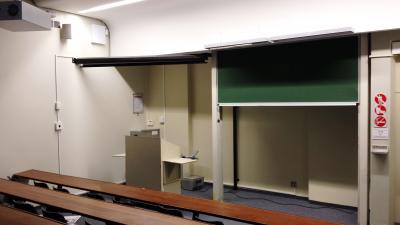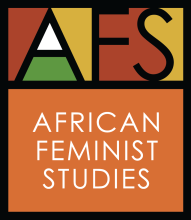
What is Gender/Women's Studies?
Everybody's talking gender. Music videos pump images of fantastic or familiar masculinity and femininity through the airwaves; national and international politicians debate the meaning of racial and gender equality; religious communities explore new - and traditional - ideas about men and women; in taxis, cafés, shebeens, corners and kitchens, friends pour over the microdynamics of gendered sexuality and communication: what did he mean when he said that? is she a real woman?
Within the Faculty of Humanities, a subject named Gender/Women's Studies offers the opportunity to explore the informal kaleidoscope of issues concerning gender, culture, and sexuality within a formal academic framework. Core courses include the following fields of study:
- What does gender mean in Africa and elsewhere?
- The impact of economic and political development on men and women
- Feminist Theories and women's movements in the context of global social movements
- Doing research in the politics of gendered knowledge
Why study Gender/Women's Studies?
Gender/Women's Studies explores the power of gender dynamics within multiple fields of social relevance. Research and scholarship about gender is often embedded within ideas about class, race, and history, so working with a gender lens can illuminate knowledge in a new, multi-faceted way. If, for example, most economists evaluate a country's wealth through measuring the value of what that country produces as goods, economists who take gender seriously will also explore the value of what gets created through reproductive labour, the work many women do taking care of children, the home space, and the elderly. This approach changes the whole orientation to the study of economics. Another example: in media analysis, taking gender seriously will both allow in-depth understanding of how (for example) the news gets created, and look at what that news may mean for different constituencies, in different places. Gender Studies is internationally recognised as a field which makes connections, opens doors and challenges familiar ideas. In African contexts, interest in Gender/Women's Studies is booming, as a result of wide continental recognition that issues of masculinity, femininity/womanhood, and sexuality are relevant to all our concerns about independence, freedom from conflict, and the development of deep democracy. Within Africa, there are complex and exciting conversations about gender, and these are continually interacting with global interests in human rights and with diverse political struggles to imagine and create just societies. In the Faculty of Humanities, Gender/Women's Studies has a particular focus on African contexts, and links this focus to an international field of research on gender issues.
What can I do with Gender/Women's Studies?
There are three possible pathways:
- A major in Gender/Women's Studies can be combined with another major (such as Psychology, Law, Development Studies, or Film and Media) so that professional development as a psychologist, lawyer, development practitioner, or media worker is strengthened by a particular expertise in gender analysis. This is often very useful in a world where knowledge of gender works well in combination with other professional skills.
- A major in Gender/Women's Studies is very useful if you are planning to move into international, or national, development work. In the past, Gender/Women's Studies majors have spent a postgraduate year in management studies and then gone on to careers in research institutions and NGO and development arenas.
- It is possible to pursue postgraduate studies, both nationally and internationally, in Gender/Women's Studies. Such studies can lead to careers in research, academic teaching and scholarship, politics, and NGO work throughout the world. Gender/Women's Studies postgraduates from the Faculty of Humanities have found jobs with the Commission on Gender Equality and the Department of Trade and Industry in South Africa, with NGO's in the UK and the USA., with higher education institutions in Botswana and Rwanda, and with a wide range of organizations in Namibia, Zimbabwe, South Africa, and Kenya.
Open Day
The annual UCT Open Day is aimed at high school learners in Grades 10, 11 and 12, their families and teachers. Due to restrictions necessitated by the COVID-19 pandemic, the event was hosted virtually in 2021. The risks considered last year remain present, and therefore we will host the 2022 UCT Virtual Open Day on Saturday 9 April 2022 on the Microsoft Teams Live platform. The programme will be made available at a later date.
Click here for more info: http://www.students.uct.ac.za/students/prospective/open-days
